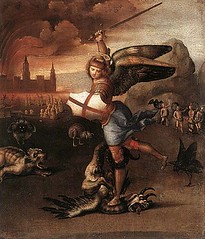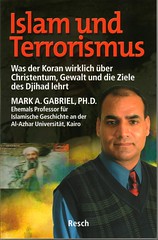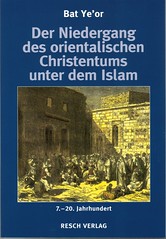By Sam Shamoun
Introduction
As the readers may already know, a cursory reading of the Islamic scripture shows that the author of the Quran distorted or was grossly mistaken about the beliefs of Jews and Christians. For example, the author accuses Christians of holding certain theological and christological beliefs that do not correspond to the facts. The Quran erroneously assumes and condemns Christians for believing in three gods consisting of the Father, Mary his wife, and Jesus their offspring. Thus, the Quran erroneously assumes that the implication of Christian beliefs is that God acquired a son through procreation, that God and Mary had sexual relations in order to have Jesus their Son (God forbid such horrendous blasphemy!).
These distortions of biblical teaching and historic Christian beliefs are well known and often commented on by Christian writers, evangelists, apologists, polemicists, scholars etc. They are even admitted by secular writers and sources.
One such writer was the late Christian scholar and Islamicist E.M. Wherry, who commented on the Quran’s distortion of the doctrine of the Holy Trinity in his A Comprehensive Commentary of the Quran. In reference to Sura 4:169[171] Wherry wrote:
Say not... three, "Namely, God, Jesus, Mary. For the Eastern writers mention a sect of Christians which held the Trinity to be composed of those three; but it is allowed that this heresy has been long since extinct (Elmacin, p. 227). The passage, however, is equally levelled against the Holy Trinity, according to the doctrine of the orthodox Christians, who, as Al Baidhawi acknowledges, believe the divine nature to consist of three persons, the Father, the Son, and the Holy Ghost; by the Father, understanding God's essence; by the Son, his knowledge; and by the Holy Ghost, his life." - Sale.
See also Prelim. Disc., p. 64.
The commentators Baidhawi, Jalaluddin, and Yahya agree in interpreting the three to mean "God, Jesus, and Mary," in the relation of Father, Mother, and Son. This misrepresentation of the Scripture doctrine again stamps the Qur'an as a fabrication, and furnishes the evidence of its being such on the ground of its own claims. The history of the Church, as well as the Bible, proves the statement of the text, as interpreted by authoritative commentators, to be false; for even granting that some obscure Christian sect did hold such a doctrine of the Trinity (of which statement we have yet to learn the truth), yet the spirit of Muhammad's inspiration represents it as the faith of the Christians generally. In almost every case where the Qur'an refers to the Christian faith, it is to inveigh against the idea that God has a son. See chap. ix. 31, xix. 31, xliii. 59. (Source)
Christian author and apologist Dr. Robert A. Morey noted that:
The Quran contains many errors about what Christians believe and practice.
One of the most significant is that the Quran misrepresents the Christian doctrine of the Trinity.
Muhammad mistakenly thought that Christians worshiped three gods: the Father, the Mother (Mary), and the Son (Jesus), (Sura 5:73-75,116).
As Richard Bell pointed out:
[Muhammad] never understood the doctrine of the Trinity.
Encyclopedia Britannica states:
[There are] mistaken concepts of the Trinity in the Quran.
… In reality, Christians believe only in one God who is in three persons: the Father, the Son, and the Holy Spirit. They do not believe that Mary is a part of the Trinity.
Even the Concise Dictionary of Islam admits:
In some cases the "material" which forms the substance of Quranic narrative, details of the creeds of Christianity and Judaism for example, does not correspond to those religion’s own understanding of their beliefs. This could be said, for example, of the notion of the Trinity found in the Quran, the story of Satan’s refusal to bow down to Adam, the Docetist view of the crucifixion, all of which can be traced to the dogmas of Gnostic sects, which are heretical in relationship to orthodox Christianity and Judaism. The Trinity "seen" in the Quran is not the Trinity of the Apostles Creed, or of the Nicene Creed. (Morey, The Islamic Invasion: Confronting the World’s Fastest Growing Religion [Harvest House Publishers, Eugene, Oregon 1992], pp. 152-153)
Noted Protestant Church historian and Patristic expert Philip Schaff wrote regarding Muhammad’s mistaken views:
In rude misconception or wilful perversion, Mohammed seems to have understood the Christian doctrine of the trinity to be a trinity of Father, Mary, and Jesus. The Holy Spirit is identified with Gabriel. "God is only one God! Far be it from his glory that he should have a son!" Sura 4, ver. 169; comp. 5, ver. 77. The designation and worship of Mary as "the mother of God" may have occasioned this strange mistake. There was in Arabia in the fourth century a sect of fanatical women called Collyridians (Kollurivde"), who rendered divine worship to Mary. Epiphanius, Haer. 79. (Schaff, History of the Christian Church, Volume IV, Chapter III, "Mohammedanism in its Relation to Christianity", fn. 188; source)
Another Christian Islamicist named Richard Bell stated:
On the other hand, there are considerable differences between the Qur’an and the New Testament. It should be noted, however, that so far as the actual statements of the Qur’an are concerned, the differences are not so great as they are sometimes supposed to be. Modern scholars, Christian and Muslim, tend to read later controversies into the wording of the Qur’an. Thus the rejection of the doctrine that 'God is one of three' [5.73/7] is usually taken to be a denial of the Christian doctrine of the Trinity; yet strictly speaking what is rejected is a doctrine of tritheism which orthodox Christianity also rejects. Similarly the rejection of the fatherhood of God the Father and the sonship of God the Son is strictly speaking a rejection of fatherhood and sonship in a physical sense; and this Christianity would also reject. The Virgin Birth is taught [19.16-33/4], but is interpreted simply as a miracle. The denial that Jesus died on the cross [4.157/6-159/7] is primarily a denial that the crucifixion was a Jewish victory; but, in line with the absence of the conception of sacrifice, it means that the Qur’an never speaks of the atonement or saving work of Jesus. (Bell’s Introduction to the Quran, revised by Montgomery Watt, Chapter 9, "The Doctrines of the Qur’an"; source; underline emphasis ours)
Source: Answering-Islam.org
Tuesday, August 31, 2010
The Quran and the Holy Trinity - Islam’s Mistaken Views of Basic Christian Doctrines
Subscribe to:
Posts (Atom)



